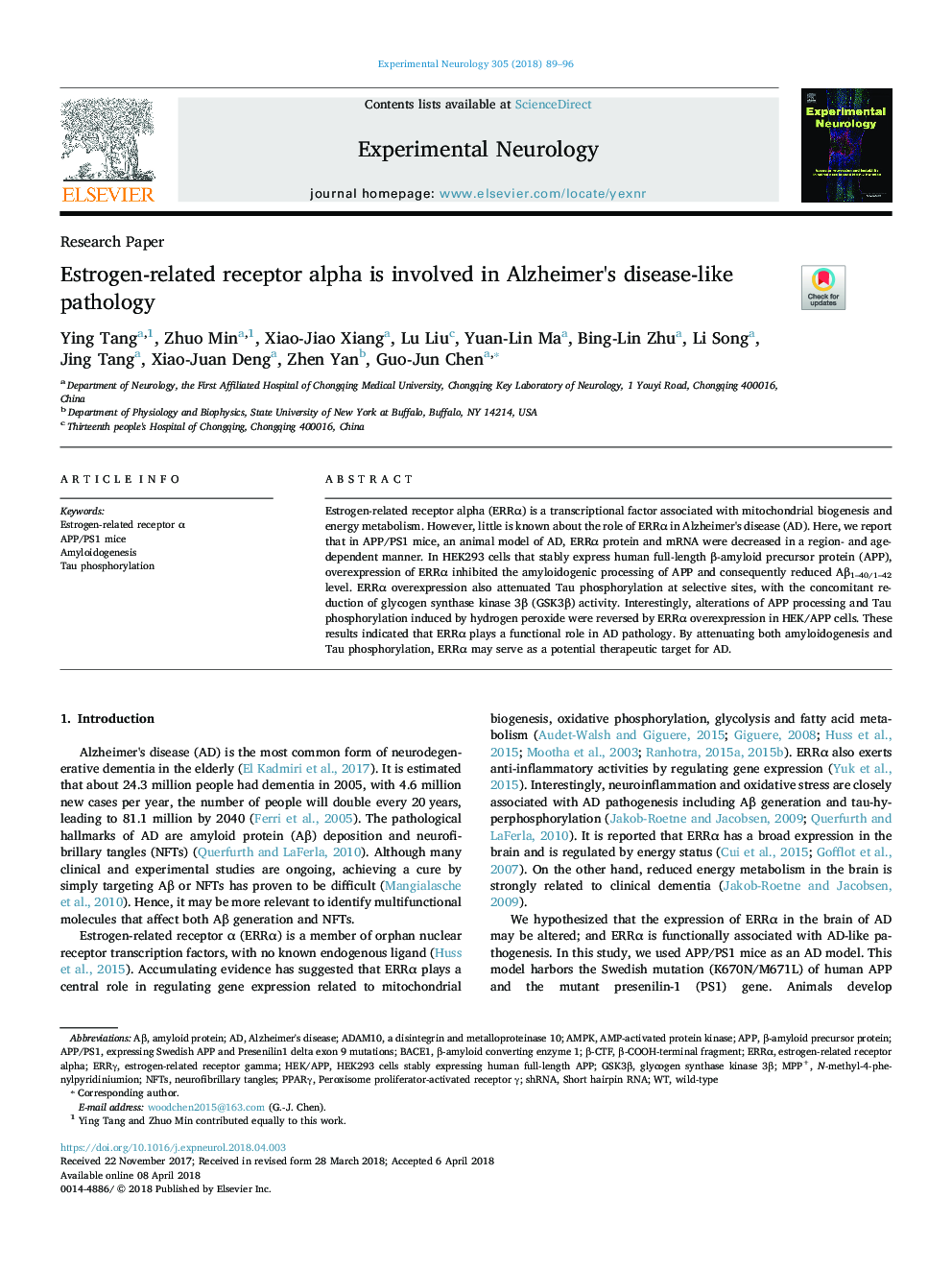| Article ID | Journal | Published Year | Pages | File Type |
|---|---|---|---|---|
| 8684620 | Experimental Neurology | 2018 | 8 Pages |
Abstract
Estrogen-related receptor alpha (ERRα) is a transcriptional factor associated with mitochondrial biogenesis and energy metabolism. However, little is known about the role of ERRα in Alzheimer's disease (AD). Here, we report that in APP/PS1 mice, an animal model of AD, ERRα protein and mRNA were decreased in a region- and age-dependent manner. In HEK293 cells that stably express human full-length β-amyloid precursor protein (APP), overexpression of ERRα inhibited the amyloidogenic processing of APP and consequently reduced Aβ1-40/1-42 level. ERRα overexpression also attenuated Tau phosphorylation at selective sites, with the concomitant reduction of glycogen synthase kinase 3β (GSK3β) activity. Interestingly, alterations of APP processing and Tau phosphorylation induced by hydrogen peroxide were reversed by ERRα overexpression in HEK/APP cells. These results indicated that ERRα plays a functional role in AD pathology. By attenuating both amyloidogenesis and Tau phosphorylation, ERRα may serve as a potential therapeutic target for AD.
Keywords
AMPKERRαshRNABACE1Aβa disintegrin and metalloproteinase 10ERRγPPARγβ-CTFAPPGSK3βNFTsADAM10AMP-activated protein kinaseAPP/PS1MPP+short hairpin RNAAmyloidogenesisAlzheimer's diseaseTau phosphorylationAPP/PS1 miceneurofibrillary tangleswild-typeAmyloid proteinβ-amyloid precursor proteinEstrogen-related receptor gammaGlycogen synthase kinase 3βestrogen-related receptor αEstrogen-related receptor alphaperoxisome proliferator-activated receptor γ
Related Topics
Life Sciences
Neuroscience
Neurology
Authors
Ying Tang, Zhuo Min, Xiao-Jiao Xiang, Lu Liu, Yuan-Lin Ma, Bing-Lin Zhu, Li Song, Jing Tang, Xiao-Juan Deng, Zhen Yan, Guo-Jun Chen,
